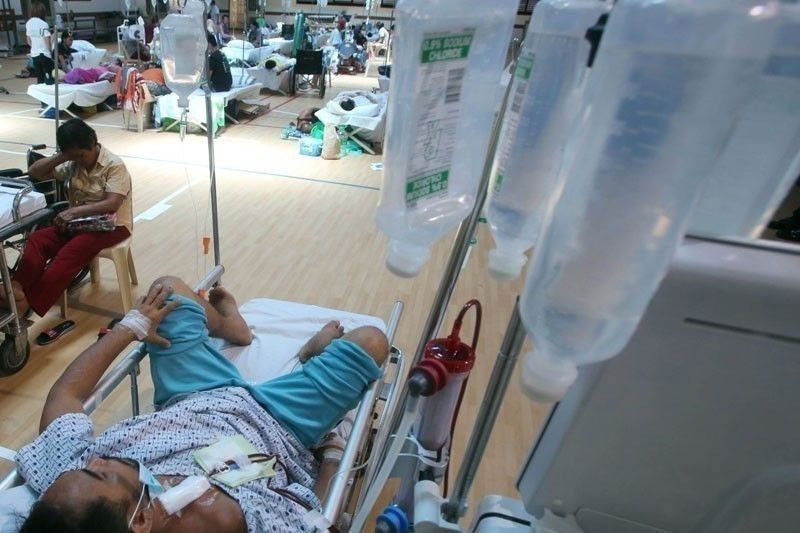House vows to improve Universal Health Care

MANILA, Philippines — With next week’s resumption of session in Congress, Speaker Alan Peter Cayetano has given assurance that the House of Representatives will prioritize the passage of a bill that will complement the Duterte administration’s Universal Health Care (UHC) program.
“The decades of neglect, brain drain, and lack of investments in health infrastructure have caused the decline of healthcare in the country,” he observed, as he vowed to fast-track approval of the bill establishing the Philippine Electronic Health (e-health) System.
“Government’s investment in e-health facilities and services can boost the delivery of medical and health programs to the poor and ensure the success of the Universal Health Care Law,” the Taguig congressman said.
Under the 2020 national budget, P172.4 billion has been allocated for the implementation of the UHC Law, which includes some P4 billion to the Philippine Health Insurance Corp. that was sourced from the collections of so-called sin taxes.
Cayetano stressed the importance of strengthening the primary health care system, noting the need to put in place effective evaluation and monitoring systems to guarantee that rural health units will meet the global standards of primary health care.
“In the event of emergencies, this will also be a handy tool that can be essential in saving lives,” he said. “An effective and responsive health care system is vital to ensure that every Filipino will have a safe and comfortable life.”
The House committee on health, headed by Rep. Angelina Tan of Quezon, has approved the measure that seeks to establish the e-Health System.
The still unnumbered substitute bill – e-Health System and Services Act of 2019 – aims to make the delivery of Philippine healthcare services faster, more accessible and convenient to all Filipinos.
The bill is a consolidation of House Bill 61 authored by Rep. Victor Yap of Tarlac, HB 171 by Tan, HB 665 by Ron Salo of Kabayan party-list, and HB 4899 of John Marvin Nieto of Manila.
It aims to institutionalize a system of providing wide access to quality health information and services using information and communication technology, referred to as the National eHealth System (NeHS), which is expected to provide better health outcomes.
The bill provides that the NeHS shall set policies, programs and projects that promote and ensure streamlined and safely regulated delivery of eHealth services to reduce inequalities, achieve universal health care and better health outcomes.
The NeHS shall also enable Filipinos to have better management and control of their health through suitable access to their own health information.
Moreover, the substitute bill stipulates the establishment of the eHealth Policy and Coordination Council, or eHPCC, that will provide and promote relevant policies and guidelines for the effective coordination and implementation of the bill.
- Latest
- Trending


































